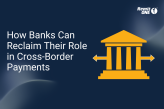Video: Compliance for Money Transfers April 1, 2021

On the 31st of March 2021, RemitONE hosted a webinar on the subject of compliance for money transfers, with expert panellists from RemitONE and other companies giving their commentary on some key topics related to compliance. In case you missed it, here is a summary of the discussion.
Webinar Moderator:
- Oussama Kseibati, Associate Sales Director, RemitONE
Panellists:
- Arif Saleem, CTO, RemitONE
- Mark Allcock, CEO, EngineF
- Ibrahim Muhammad, Independent Payments Consultant
- Muhammad Inuwa, Head of Compliance, AZA Finance
What are the key compliance regulations that we commonly see across jurisdictions?
Ibrahim Muhammad: Money transfer is considered a high-risk business, which makes compliance important. Regarding common regulations, the Financial Action Taskforce is the international body that feeds down to the various jurisdictions, which each set its own regulations through regulatory bodies. Some of the common regulations we see across jurisdictions concern customer due diligence, KYC, sanctions screening, screening against PEPs (politically exposed persons), transaction monitoring, and of course reporting of suspicious activity to regulatory bodies.
Regarding technology, how has compliance evolved frontend usability? Has new tech like e-KYC and biometrics influenced compliance?
Arif Saleem: In the new world where people can use systems without ever interacting with agents, we’ve seen several improvements to KYC implementation in terms of capturing customer details at registration and real-time verification checks. We’ve also seen AI used by a number of platforms to gauge the accuracy of registration information, as well as developments in areas like name screening and PEP lists to help ensure that the requisite due diligence and compliance are done and allow users the flexibility to use platforms without being physically present. The pandemic situation has significantly pushed the rate of change in this area, as the necessity to conduct these activities online has resulted in people becoming accustomed to it.
Mark Allcock: We’ll also see a shift towards using more advanced database technologies alongside biometrics and other tech to streamline processes, which I believe is a positive trend. Privacy issues are raised by this, and I believe data should belong to and be in control of the individual. Data passports present an opportunity to deliver something beneficial that can help protect people in many countries from unethical practices.
Ibrahim Muhammad: Another emerging technology in this scene is blockchain-based KYC solutions. These are being developed in response to the pandemic, for example in the UAE. Once that KYC is in place, we won’t have to redo KYC for every other product or service.
How has technology evolved the backend check and monitoring within compliance?
Arif Saleem: Broadly, I would say there are five areas to look at here. These are: name screening, where we’ll need more sophisticated algorithms to account for different spellings and aliases when matching names; volume and velocity checks, which must now check things like corridors where customers are sending money and nationalities of the people involved; reporting, where we’re increasingly seeing automated real-time systems managed by state entities; risk scoring, with risk profiles based on various factors used to make automated decisions; and finally, so-called piggyback bank accounts – we’ve seen a new business stream where operators offer their accounts for others who are unable to obtain one to use – the issue here is that they then become responsible for compliance and reporting to their regulatory bodies, although we have seen innovations in this area such as Proton.
What are the key roles of an MRLO? Are there any common headaches that come along with this?
Ibrahim Muhammad: Their key role is ensuring that the AML (anti-money laundering) policies are in place and to create a top-down culture so that everyone in an organisation is aware of the regulations. MRLOs also have to ensure systems are in order and up to date, with the pandemic requiring changes to regulations governing electronic KYC. A major challenge is simply keeping pace with disruptive technologies, new players and yet-to-mature regulatory areas.
Muhammad Inuwa: Another issue is finding a balance between business and the risk presented – if we move towards stricter risk mitigation, we can end up without any business, while if we’re too lax and allow business in without adequate controls, issues can arise with the regulators.
What are the top compliance priorities for businesses in 2021, e.g. connections to databases and interfaces?
Mark Allcock: There’s a need for stability and reliability, which will grow as we see more unbundling of services for moving money around and managing account openings. The attention given to some higher-profile fintechs and money transfer at a global level raises heightened concerns for regulators, which can cause issues for smaller and medium-sized operators. I also think we’ll see a shift towards real-time interaction with regulators, and everything that entails.
How can we remove friction for front-end users and still remain 100% compliant?
Muhammad Inuwa: Having data that enables you to whitelist a client, or place a higher risk on them, will enable the client to perform these activities quickly and seamlessly. One of the barriers is checking for a range of IDs to ensure that the provider complies with each country’s rules. If governments can provide backup for these services, companies will be able to tap into these networks and see which providers are available.
Arif Saleem: From the perspective of name screening, most regulatory bodies who have their own lists publish them publicly, so we can incorporate these into our own name screening service.
What efforts are currently in place to track the activities of the unbanked recipients in remote areas and villages?
Muhammad Inuwa: National governments have increased their focus in this area, providing financial institutions with licenses for rural areas. Combined with mobile banking facilities and penetration of telecommunication services, this has increased opportunities for people in those areas to receive funds without having to travel hundreds of miles to cities. Compliance around intra-Africa payments has also evolved to allow direct transactions between two currencies without the need to convert through US dollars.
What would be your advice on compliance to new entrants in the industry?
Mark Allcock: Getting bank accounts to support the business is becoming more difficult, so you have to think very carefully when approaching banks to ensure they understand the business and its plans to ensure high-quality compliance, as people’s perceptions can be quite different from intended reality.
Our thanks to Arif, Ibrahim, Mark and Muhammed for their words and their time.
RemitONE’s award-winning compliance platform is used and trusted by leading banks and money transfer operators (MTOs) all over the world. Our Compliance Rules Engine™ is one of the world’s first business rules-driven compliance platforms. You can simply input the rules set by your regulatory authority and the engine uses its sophisticated algorithm to enforce them. If you are interested in finding out more about our compliance products or services please email marketing@remitone.com
Related Posts
-

How to Build a Leaner, Smarter Money Service Business in 2025
In an era of rapid regulatory change, rising customer expectations, and digital disruption, how can money service businesses (MSBs)—companies that…
May 22, 2025 -

Trump’s Threats to Cross-Border Payments: What It Means for Your Business
It’s been a short while since Trump stormed back into office, and he’s already shaken things up with his hard-hitting…
May 22, 2025 -

Unlock Faster, More Secure Payments with RemitONE’s Open Banking Solution
We’re excited to introduce the latest enhancement to our RemitONE Money Transfer Platform: the RemitONE Open Banking Solution. Competitively priced…
January 31, 2025 -

How to Expand Your SEND Operations in the UK and Europe—Without the Regulatory Hassle
The remittance market in Europe is valued at €133.7 billion annually, with the UK market contributing an additional £23 billion.
January 31, 2025 -

The Top 5 Cross-Border Payment Trends That Shaped 2024
What a year it’s been for the world of payments! From breakthroughs in tech to surprising shifts in consumer behaviour,…
December 19, 2024 -

How Banks Can Reclaim Their Role in Cross-Border Payments with RemitONE
Banks, once the cornerstone of international payments, are finding themselves sidelined. Senders and receivers have now joined forces, pushing banks…
December 18, 2024